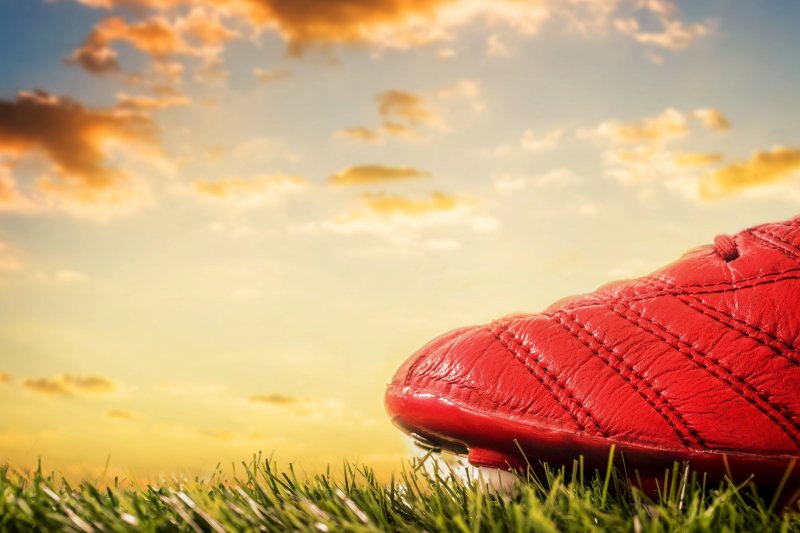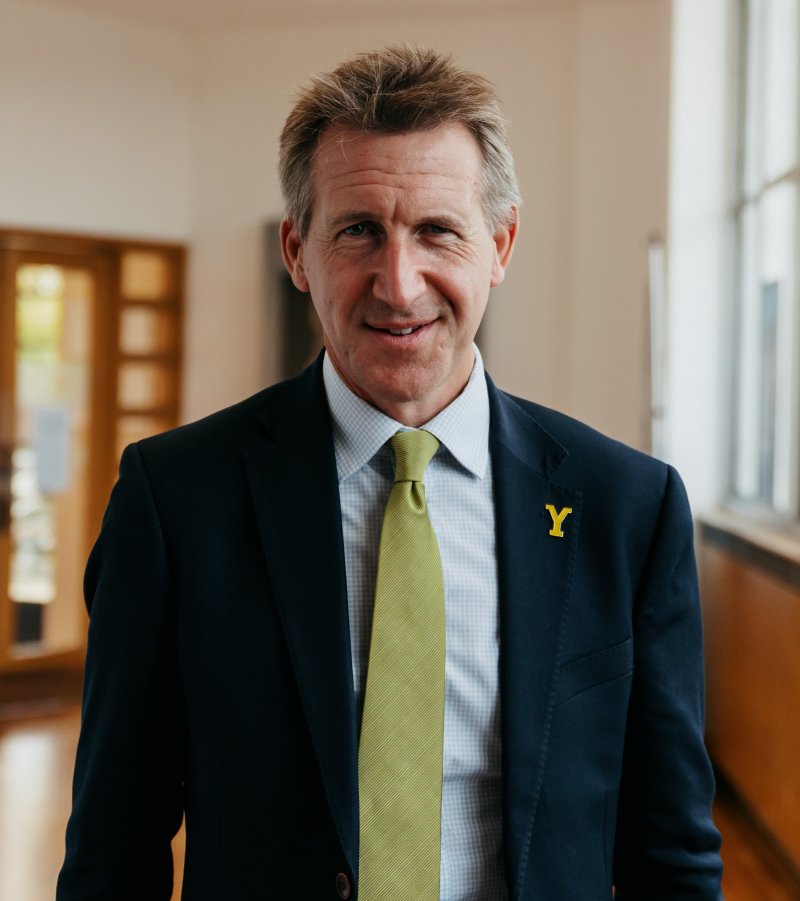MICHAEL Duff was released from three academies because he was too small, sent back from a loan to seventh-tier Cirencester for ‘not being good enough’ and worked part-time at a Co-Op.
But eventually he became a tall centre-back, earned three promotions to the Premier League, marked David Villa in Northern Ireland’s famous win against all-conquering Spain and played more than 600 professional club games.
He is now an up-and-coming manager and, approaching six months as head coach of Barnsley, he sat down with the Chronicle for an exclusive interview on his life and career.
Duff was born in Belfast in 1978 then the family moved to Gibraltar six weeks later, before spending time in Germany due to his father John’s career in the Royal Air Force.
He went to seven different primary schools as his father – who did tours in Yugoslavia and the Gulf War – moved from base to base. The family stayed for six years in North Yorkshire where Michael did all of his secondary schooling.
He said: “That’s the life of a serviceman.
“It’s a bit like footballers. You make friends then move on and, years later, you meet the same people again. A lot of the kids in the schools I went to were in the same boat.
“It makes you communicate and see different people from different backgrounds. So, without knowing it, you probably learn a lot.”
Wherever he was based, Duff always played football, saying: “It is all I have ever done.
“I can’t remember wanting to do anything else. I grew up in the ‘80s so I just played outside with a ball until the streetlights came on. I never particularly enjoyed school and was never going to go down the academic route.”
Duff was in the youth system of Nottingham Forest then Darlington, but they both released him. The same happened at Swindon Town aged 17 after he moved down to Oxfordshire because his father transferred to RAF Brize Norton.
“I was released three times for being too small. I was tiny. Everyone towered over me at school. There wasn’t as much thought going into it as there is now. My dad was six foot one, my mum was five foot eight so I wasn’t going to stay small. I was a late developer.”
After leaving Swindon, Duff played for a couple of months for his local side, eighth-tier Carterton Town, and had a growth spurt.
He then reluctantly attended a trial for Cheltenham Town, saying: “I had a chest infection and didn’t want to go. But my dad made me. I was really bad. I was coughing and spluttering and only played a half. But I must have done something right because I got in.”
Cheltenham were then in the Southern League, the sixth tier in England. Duff played a few games for the first team then was loaned to Cirencester. He said: “They sent me back after a month and said I wasn’t good enough. Not that I am bitter or anything, but I do remember the coach’s name – Ray Baverstock.”
When he returned to Cheltenham, they were managed by Steve Cotterill and Duff became a regular, but he still needed a part-time job at first.
“I worked at the local Co-Op on a Sunday from ten until four. I used to get £90 a month. But I never had proper job. If football hadn’t worked out, I would probably have gone into the forces.”
But football did work out. Duff helped Cheltenham to promotion from the Southern League in his first full season in 1997, won the FA Trophy at Wembley in 1998, then scored the goal that took them into the Football League in 1999 before they reached the third tier in 2002.
“Steve picked the club up by the bootstraps. We went from the equivalent of the Conference South to League One in five years and half the team stayed the same. I was improving as the club went up the leagues so it was perfect."
Cotterill left for Stoke City and tried to sign Duff but Cheltenham rejected the offer. He was relegated and promoted with the Robins before Cotterill, then at Burnley, signed him in 2004 for £30,000. The Clarets were in major financial difficulties after the collapse of ITV Digital.
“I thought the chance to play at Championship level had gone, so it was a big move for me.
“I was living in a hotel with Frank Sinclair and John McGreal at first. They had both had great careers and taught me a lot about how to look after yourself.
“When I signed, we had eight players. The club had been crippled. We were favourites for relegation. But it meant I had to play and I had 50 games under my belt at the end of the first season.”
Burnley stabilised and Duff was a regular in the second tier before he sustained a serious knee injury aged 29 which doctors first told him could be career-ending.
“I was coming up to 30, had no qualifications and my wife was pregnant. It was a lightbulb moment for me. I had taken football for granted and it had become just a job, because it’s all I had ever done. I had always been good at football and fairly popular with people because of that. Then it nearly all got taken away. I realised how lucky I was to be paid what I was being paid and play football at that level. Most people would give their right arm for it. I looked after myself unbelievably after that in terms of gymwork, diet and professionalism. That’s why I got to 38.”
He returned for the final game of the 2007/08 season and, the next campaign, Burnley beat Sheffield United 1-0 in the Championship play-off final at Wembley so Duff was the first man to go from the eighth tier to the first, playing at every level. He said: “I never shouted from the rooftops that I wanted to play in the Premier League or that I thought I could – most people would say I couldn’t. But I always had a desire to get there or at least do everything I could to get there. It was an awful game and I’ve never watched it back. But Wade Elliot scored an unbelievable goal and it was just hysteria when we won. I had had a different route to the top and I really appreciated 30 years of hard work coming to fruition.”
Burnley would go straight back down the next season and also in 2014/15 under Sean Dyche, then Duff helped them to the top flight again in 2016 before retiring at 38.
“My memories of the Premier League are that I wasn’t good enough for it. Every time I was in it, we went down and the time I retired, they stayed in. It was amazing going to those stadiums and playing against the best players in the world. I really enjoyed it but probably wasn’t good enough.”
Although he played against the likes of Didier Drogba, Sergio Aguero, Harry Kane and Zlatan Ibrahimovic, Duff says his toughest opponent was Ryan Giggs while playing for Northern Ireland against Wales in 2005.
“I played right-back, which I always hated.
“I hit the crossbar after six minutes and it went downhill rapidly from there.
“I think, in the first half, he set two goals up and nutmegged me about eight times.
“I saw the substitutes board go up and I was like ‘please be number two’. It was number two and I think the crowd were quite happy as well.
“He absolutely murdered me. I have never been more pleased to get off a pitch.
“There was nothing I could do about it. I had sleepless nights afterwards.”
Duff has some happier memories with Northern Ireland, for whom he won 24 caps.
He came off the bench late on in their famous win over England in 2005. He said: “I didn’t want to come on because we were winning 1-0 and it can only go wrong. Lawrie Sanchez said ‘go on and head it’ I said ‘where am I playing?’ he said ‘go and head the f****** thing’.
“After the game, their kitman came in and gave us a load of England shirts. We all picked up one but, and no disrespect to Phil Neville, I got his shirt when they had people like Steven Gerrard, Wayne Rooney, Ashley Cole, Rio Ferdinand and John Terry.”
Duff says the 3-2 win against Spain the next year is his favourite ever game.
“We beat them in the qualifiers for Euro 2008, which they won, then they won the next World Cup and the Euros again. The front three was David Villa, who I marked, Raul and Fernando Torres. They had Sergio Ramos, Iker Casillas, Xavi and Xabi Alonso. I have no idea how we won. But we had David Healy (who scored a hat-trick) and Windsor Park that night was the best atmosphere I ever played in even though I have played in front of 90,000 and that was 15,000.”
After retiring from playing in 2016, Duff spent two years at Premier league Burnley as under 18s then under 23s coach.
“I was in the first team meeting every morning and would have the earpiece on with Dychey at the back of the stand for every first team home game, then talk to him at half-time. I travelled with them to Europa League games in 2018. It was a great experience. I was working under one of the best English coaches.”
Eventually he moved back to Cheltenham in 2018 for his first manager’s job. After not winning his first nine league games, he kept them up in his first season, lost in the play-offs in his second, won League Two in his third then, last season, achieved the club’s highest ever placing of 15th in the third tier.
“You can do all the coaching courses in the world but you are never prepared for being a manager. There was a member of staff who wasn’t very good and I wanted to get rid of him, but his wife was terminally ill so I couldn’t.
“The first three players who came to see me, not one of those meetings was about football.
“In most jobs, if you don’t win in the first ten games, you’re out. And if you fail in your first job, you generally don’t get another one.
“We didn’t move straight away so I was driving from Manchester to Cheltenham every day thinking ‘why is this not working?’
“There was a lot of soul-searching. But we landed on a 3-5-2 which worked. I signed Luke Varney who is the best signing I’ve ever made because he changed the dressing room totally.
“I didn’t expect I could get them promoted, based on finances, but over time we found something that worked. In the second season, I am adamant we would have gone up automatically if not for Covid but our whole season unravelled in one game in the play-offs.
“Then we won the league the next year and staying up last season was probably an even bigger achievement.”



























